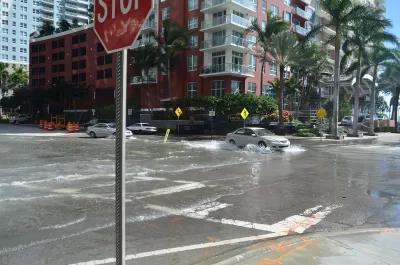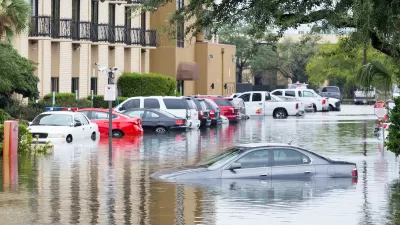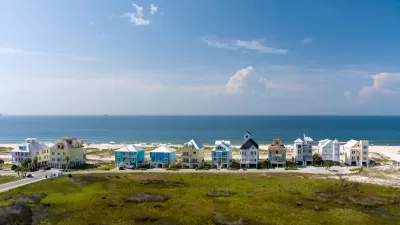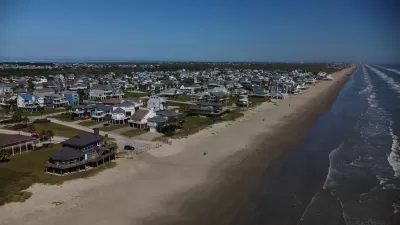Climate change is coming for the state of Florida, and it’s already showing up in the insurance market.

“As Florida’s property insurance market continues to buckle, thousands of homeowners across the state are increasingly choosing to forgo insurance, sell their homes or even leave Florida,” reports Mary Ellen Klas for the Miami Herald.
Tasha Carter, Florida’s insurance consumer advocate, is cited in the article issuing the warning about the increasing costs of climate change mitigation for Florida residents—and its increasing likelihood to drive out-migration from risky locations around the state.
Carter issued the warning as the state’s legislators gathered for a special session likely to increase insurance rates to stabilize the market.
“Florida’s property insurance market has seen double-digit percentage increases for the past few years,” according to the article. Rep. Tom Leek, an Ormond Beach Republican who is sponsoring the House insurance proposal, is quoted in the article explaining the intended goal of the special session.
“He said the package of proposals — to reduce the financial incentives for attorneys to file lawsuits against insurers, give homeowners less time to file a claim and create a $1 billion taxpayer-funded program to provide backup insurance for struggling insurers — will eventually lead to lower property insurance premiums,” writes Klas.
Meanwhile, the state’s governor remains committed to subsidizing behaviors that emit the most greenhouse gases.
Another Miami Herald article by Nicolas Rivero, published a few days later, also reveals the increasing demand for another form of protection—water pumps.
“[P]umps are an integral part of plans to help save South Florida from flooding. Thanks to climate change, stormwater systems here — and around the world — are coming under growing strain. In some cases, they’re starting to fail,” according to Rivero.
Despite Carter’s warning about residents leaving the state and the increasing cost of home insurance and mitigation measures in the state, Florida’s population growth led the nation in 2022.
FULL STORY: https://www.miamiherald.com/news/politics-government/state-politics/article269954162.html#storylink=cpy

Planetizen Federal Action Tracker
A weekly monitor of how Trump’s orders and actions are impacting planners and planning in America.

Restaurant Patios Were a Pandemic Win — Why Were They so Hard to Keep?
Social distancing requirements and changes in travel patterns prompted cities to pilot new uses for street and sidewalk space. Then it got complicated.

Maui's Vacation Rental Debate Turns Ugly
Verbal attacks, misinformation campaigns and fistfights plague a high-stakes debate to convert thousands of vacation rentals into long-term housing.

In California Battle of Housing vs. Environment, Housing Just Won
A new state law significantly limits the power of CEQA, an environmental review law that served as a powerful tool for blocking new development.

Boulder Eliminates Parking Minimums Citywide
Officials estimate the cost of building a single underground parking space at up to $100,000.

Orange County, Florida Adopts Largest US “Sprawl Repair” Code
The ‘Orange Code’ seeks to rectify decades of sprawl-inducing, car-oriented development.
Urban Design for Planners 1: Software Tools
This six-course series explores essential urban design concepts using open source software and equips planners with the tools they need to participate fully in the urban design process.
Planning for Universal Design
Learn the tools for implementing Universal Design in planning regulations.
Heyer Gruel & Associates PA
JM Goldson LLC
Custer County Colorado
City of Camden Redevelopment Agency
City of Astoria
Transportation Research & Education Center (TREC) at Portland State University
Camden Redevelopment Agency
City of Claremont
Municipality of Princeton (NJ)





























